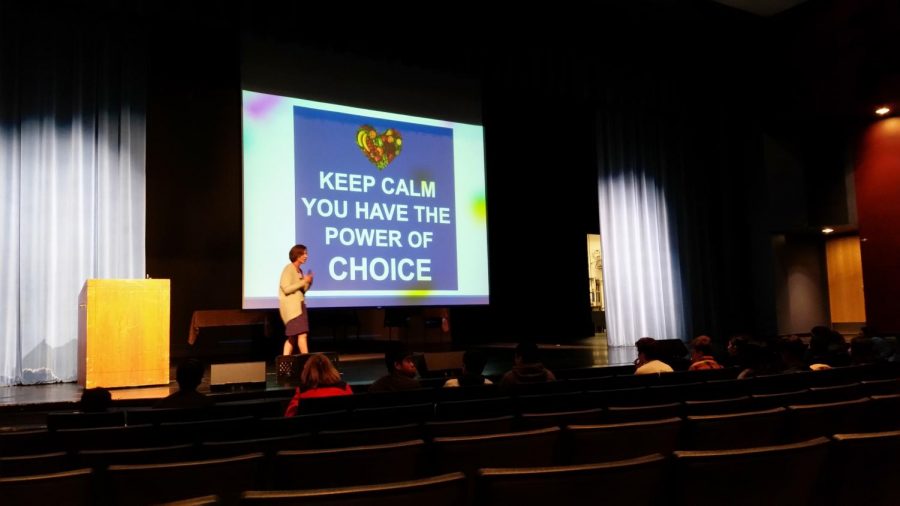Students get smart about their eating habits with SCHS “The Ethics of Eating” event
Willey spoke about topics that ranged from eating habits to global warming.
More than 8 million land animals are killed for food every hour, according to Kathleen Willey, the guest speaker at SCHS’s “The Ethics of Eating” event. This is one of the many facts Wiley shared during her presentation on Thursday, Jan. 23.
Willey is a field educator for the Educated Choices Program, and the topics she discussed ranged from eating habits to global warming, climate change and deforestation to the amount of water needed to produce meat.
The event was organized by biology teacher Suzanne Miller-Moody for her second-period class to help her students learn how to address climate change and how to take action. She also wanted to start a conversation among her students about necessary changes to ensure human survival.
“We can have a pretty fruitful discussion about what our eating choices mean to our environment and how we can maybe modify some of that so, ultimately, we can be better stewards of our environment,” Miller-Moody said.
Although the event was not necessarily a discussion, students were able to ask Wiley questions, allowing them to be engaged.
Freshman Kaitlyn Venator believed the presentation was compelling.
“I think there was a lot of information. It was very interesting to see all of the statistics put together and piled up next to each other,” Venator said.
SCHS counselor Katy Weeks and her family have made dietary changes, and she liked how Wiley’s presentation was given in a way that was non-pressuring.
“We have been trying lots of different plant-based meals in my house for the last four or five months, and so if anything, it (the presentation) is just reaffirming our direction with that,” Weeks said.
Protecting the environment has been an ongoing cause, and there are many different opinions on what to do about the issue. Miller-Moody hopes that the discussion moves the younger generation to take action.
“I hope that it is something that we can continue to do to create a conversation because ultimately, as sappy as it sounds, you guys are the ones that are going to have to help make some drastic changes that we need in order for humans to continue to survive on this planet,” Miller-Moody said.


